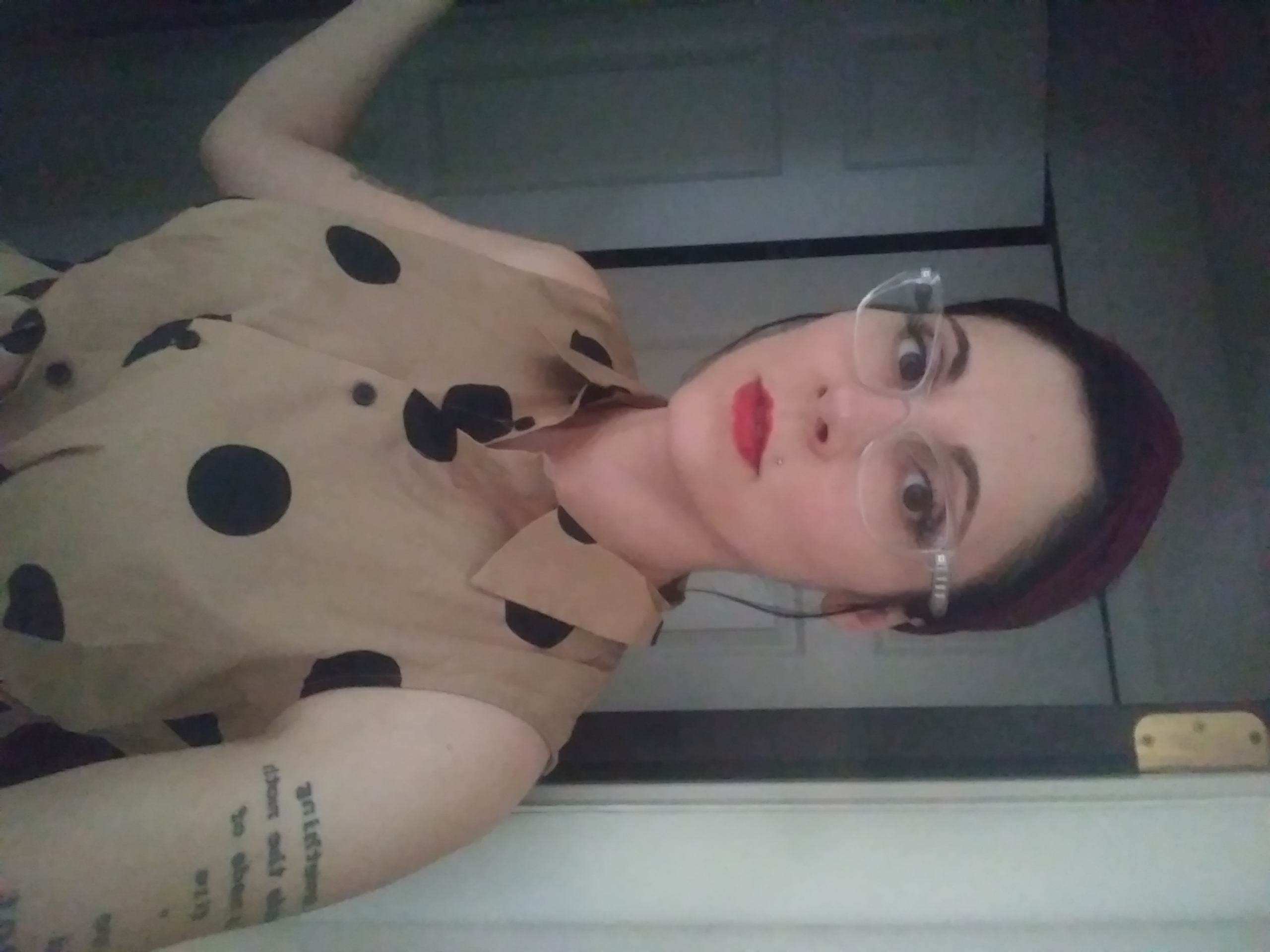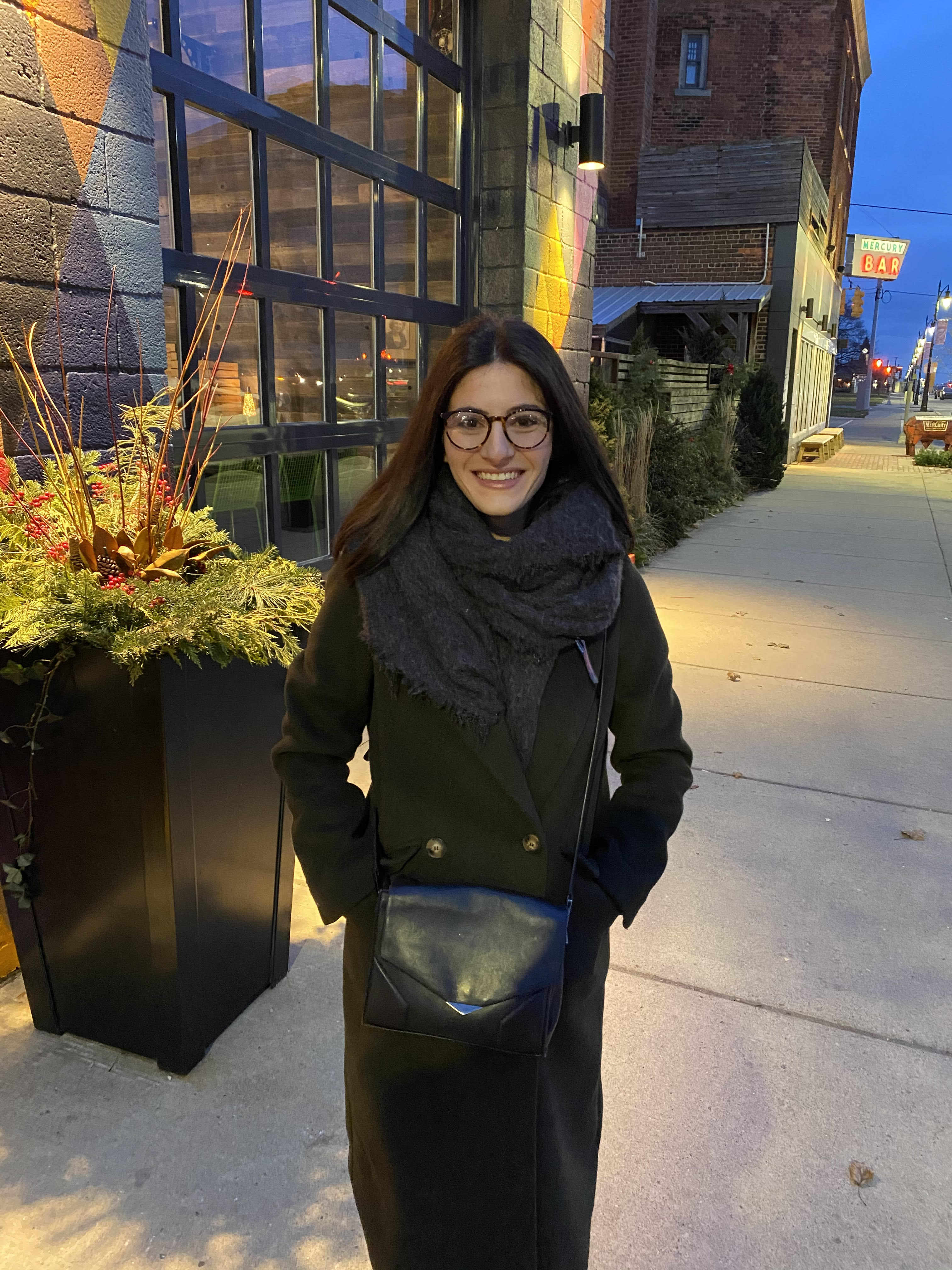Key student assistantships reimagined due to COVID-19
The Wayne State University Library System’s Graduate Student Assistant program is designed to provide students with professional hands-on learning experiences in an academic library setting. So what is a program to do when “hands-on” is no longer an option due to a global pandemic?

For Katrina Rouan, coordinator for the Wayne State University Library System’s Graduate Student Assistant program, the only option was to keep calm and carry on. Rouan, MLIS ‘09, was a GSA herself, so she is uniquely qualified to coordinate the program, but she never expected to be doing so in the era of COVID-19.
“The GSAs are students and an integral part of the library system, so they have a unique perspective and a lot to say. For many years, the GSA experience was very reference desk driven,” she said. “A lot of people still think that without a reference desk, there is not much for the students to do.”
Rouan oversees the GSAs and is focused on expanding and improving the program from year to year. She carefully matches students with projects that suit their interests and strengths, and often introduces them to different aspects of the profession. It was an especially challenging task as the university’s libraries were shuttered in March 2020, but Rouan was able to quickly pivot to find meaningful projects that each of the students could work on remotely.
“As much as it’s a challenging time for any field of work or study – It’s also a unique opportunity. I’m getting a chance to see all of the things we can accomplish remotely,” said GSA Sarah Sorensen. “That’s significant for a lot of reasons. Seeing what we can accomplish while not being present in a physical library – whether patrons live in rural areas, are unable to visit the library due to disability, or if they don’t have reliable transportation – the innovative ways that we can offer services matters right now, but they will matter in the future, too.”

The challenges she has faced haven’t diminished the enjoyment Rouan gets from working with the students.
“One of my favorite days of the year is when I get to call the students who have been selected as Graduate Student Assistants (GSAs) to let them know that they got the job,” said Rouan.
Troy Walker called it one of the best phone calls of his life. “I was really trying to keep my cool, but I couldn’t contain my excitement. As soon as I hung up I was jumping up and down and couldn’t wait to celebrate with my family and friends,” he said.
The level of excitement is understandable. Dozens of students apply to become GSAs, but only eight positions are available at any given time. The highly competitive and highly coveted paid positions give students invaluable hands-on experience, professional development and networking opportunities. New positions only become available when previous GSAs graduate. This year nearly 50 students applied for three open positions.

GSAs usually begin their experience in Reference Services, working at the service desks at either Purdy/Kresge or the David Adamany Undergraduate Library, which introduces them to the library system and the basic foundations of library service. GSAs are committed to working 20 hours per week, which includes time dedicated to each student’s self-directed personal and professional development.
In their second semester of service, GSAs begin their involvement in interest-specific projects. Rouan helps guide the students to projects that will best help them prepare for their careers and places them throughout the library system to gain hands-on experience.
“Once the pandemic hit, I was able to begin working on several projects from home. As bad as the pandemic is, it gave me the opportunity to start working on library projects earlier than expected,” Walker said. “It has definitely been a silver lining during these difficult times.”
In addition to their schoolwork, personal responsibilities and their commitments as GSAs, the students often work other part-time jobs at local public libraries or museums, while still making time to connect regularly with Rouan and their peers.
“I really have appreciated the networking aspect – getting to know other librarians and future librarians,” Sorensen said. “Sometimes it’s easy to focus on what you’re learning in your courses and looking at the smaller picture. The more people you meet and get to know, the more you can connect and reach out to people in the future. I hope to pay that forward.”

As the campus libraries reopen in a limited capacity this fall, GSA work will likely follow a hybrid model as the libraries begin offering some in-person services in addition to the virtual reference services that have been offered since the closure in March.
Whether working remotely or in-person, the GSA program continues to provide students valuable experiences that will prepare them for their futures in LIS careers.
“I credit the GSA position for so much of what I’ve learned. Being in an academic library, I’ve been fortunate to learn about the difference facets of the program and that has helped me find the direction I want to go in,” said GSA Aliki Mitsiopoulos. “Katrina really fosters our interests and helps us connect with projects that interest us. I’m grateful that we’ve been encouraged to follow any type of inspiration or experience and gain knowledge out of it.”
To read more about the current GSAs and their work, click here.